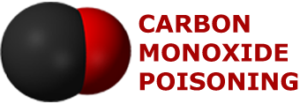Hurricane Matthew is causing health problems more than what is expected. In addition to concussions, lacerations, and blunt force trauma, there are other health risks included in the path of the storm, such as heart attacks, skin infections, and carbon monoxide poisoning.
We are urging people to take caution when operating portable generators when the power goes out in the home. A portable generator should never be used indoors, in garages, crawlspaces, or other enclosed spaces. Don’t place the generator near doors, windows, or vents, because the carbon monoxide gas could be drawn inside. View this blog about safety guidelines for operating a portable generator: https://carbonmonoxide-poisoning.com/2016/08/safety-tips-operating-portable-generator.html.
When used indoors, gas-powered portable generators can allow toxic carbon monoxide gas to accumulate to dangerous levels. Since the gas is colorless, tasteless, and odorless, it is imperative that people install working carbon monoxide detectors in the home and replace the batteries regularly.
When operating a portable generator, if you start to feel sick or dizzy, get to fresh air immediately and call for help.
The Florida Department of Health researched incidences of carbon monoxide poisoning before and after major storms, and found that the number of people visiting the emergency room because of carbon monoxide poisoning was significantly greater after major storms.
The U.S. Centers for Disease Control and Prevention showed that gas-powered generators were an important cause of hurricane-related injury and death, even though they are not considered a major health problem by the public.
The CDC recommends only using generators outside, more than 20 feet away from your home, doors, and windows. Every year, more than 400 people die due to accidental carbon monoxide poisoning, the CDC says. It also recommends never using an oven to heat the home.
In addition, don’t run a vehicle, pressure washer, generator, or gas-powered engine outside an open window, door or vent where exhaust can vent into an enclosed area. Don’t run a generator, pressure washer, or other gas-powered engine in a basement, garage, or enclosed space even if the doors and windows are open.
Also keep vents and flues free of debris. If winds are high, flying debris can block ventilation lines.
This is an important issue, and can be a matter of life and death. In September, three people died because a portable generator was being operated inside the home. See this article: https://carbonmonoxide-poisoning.com/2016/09/gas-powered-generator-kills-three.html. In February, six people died from operating a portable generator indoors in Michigan. See this article: https://carbonmonoxide-poisoning.com/2016/02/generator-causes-six-carbon-monoxide-deaths.html.

Leave a Reply
Want to join the discussion?Feel free to contribute!